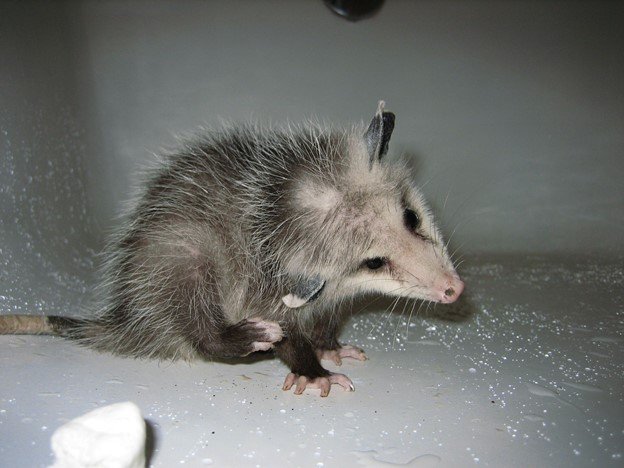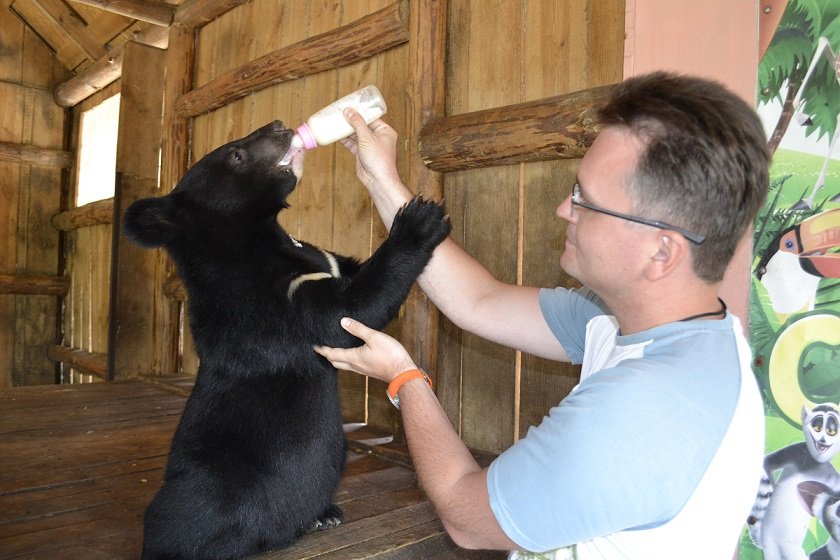Most people, when talking about wildlife, are usually talking about finding ways to keep it away, and not adopt it. Though occasionally, there will be someone who asks “but why shouldn’t I keep an exotic animal as a pet?”. Well, that’s an interesting question, one that we’ll do our best to answer in this post.
Firstly, you can visit this interesting post that records more than a dozen (wild) animals that are legal to be bought and kept in the USA.
Surely, keeping a wild animal pet has its set of benefits, and is a fairly attractive idea. It sets you apart, for a start, and can also protect you, or make for an interesting life, at the least.
But at the same time, keeping wildlife as a pet has its undeniable set of drawbacks, and it’s important that you consider them before investing in a pet.

What are the pros?
Before we get to the downsides, let’s talk a bit about the many good aspects of having a wild animal for a pet. For one thing, many smaller wild animals, like a gecko, for instance, are smaller, and so may be easier to keep inside a small home than, say, a more traditional dog.
They might also be part of an endangered species, or one that has trouble surviving in the wild, and so adopting a specimen can actually be a great and noble thing to do.
Some wildlife also serves to control pest and insect population inside your home, thus adding yet another reason to why you should get a wild animal for a pet.
So what are the downsides?
There are, as we’ve seen, some undeniable benefits to owning a wild animal. But there are also negative aspects – like what, exactly?
Well, first and foremost, there’s the obvious argument that wild animals are thus called for a reason, that being they are used and tuned to living in the wild. As such, a sheltered, and domesticated life can pose an ethical concern for the owner. Is it okay to bring a wild animal indoors, and thus keep it captive (even with the best intentions at heart, that’s still what you’re doing)?

Then again, there’s the issue of safety. Naturally, some wild animals will be more safe than others, and to learn more about that, we recommend that you reach out to a professional at nywildlifecontrol.com. But many wild animals carry a broad range of disease, and can pose a health hazard for you, your children, and your pets. If you do decide to keep a wild animal for a pet, you will need to go through a host of vet visits, to ensure it’s safe.
Another concern with keeping wild animals for pets is that they tend to grow up, eventually. While it may seem fine to keep a baby wild animal as a pet, when it grows up, it might be less suitable for all parties involved, both because of its size, as well as its habits. And what are you going to do then? Release it into the wild? After you’ve domesticated it and made it incapable of fending for itself? You can no doubt see how this poses a gnarly ethical problem for most people.
Bottom Line – Should you keep a wild animal for a pet?
While you probably have the best intentions at heart, as you’ve seen in this article, there are more aspects to be considered than merely the fun and exotic aspects of owning a wild animal for a pet. While there might be exceptions here, as there are in most cases, it’s generally inadvisable to get a wild animal for a pet, and recommended that you stick to more traditional pet animals.
Sharing your room with a pet iguana, snake, or opossum might sound fun, at first. But whenever getting a new pet, it’s important to remember that this arrangement is forever, not just for a couple of days. So do try to pick a pet that’s well-suited to your own personality, inclinations, and lifestyle. Remember, there’s a reason why cats, dogs, hamsters, and fish are the most popular in the pet world!

